
Day: November 21, 2025
Daily pill slashes ‘bad’ cholesterol levels by 60% in yearlong trial
A new daily pill reduced bad cholesterol by 60% in a groundbreaking study of 303 adults with a genetic condition, offering hope for heart disease prevention.
7da3f541-ca88-5297-9292-7c547364bcb2 • fnc • Fox News • fox-news/person/kash-patel • fox-news/tech/topics/fbi
EXCLUSIVE: FBI concludes Trump shooter Thomas Crooks acted alone after unprecedented global investigation
Patel, Bongino and a senior official shared new details of the monthslong investigation in an effort to provide maximum transparency to the American people amid recent reports that have suggested several theories, which Patel, Bongino and the official debunked.
3cc8a2ec-21a0-5b41-bc38-6fa6704687dc • fnc • Fox News • fox-news/politics/house-of-representatives • fox-news/politics/house-of-representatives/republicans
House Republicans demand Trump admin deny Mamdani federal security clearance
House Republicans urge Trump to deny NYC Mayor-elect Zohran Mamdani federal security clearance over alleged radical ties and “anti-American rhetoric.”
7a040faf-8236-5f7e-8f37-950ec8d026c2 • fnc • Fox News • fox-news/auto/attributes/innovations • fox-news/tech/topics/innovation
Neighbors outraged as LA airport becomes ground zero for AI-driven flying taxis
Archer Aviation acquires Hawthorne Airport for $126M to launch LA air taxi network ahead of 2028 Olympics, featuring AI-powered eVTOL operations and next-gen aviation tech.
76c8f348-9d8d-564c-aae8-4e8fc38b9fec • fnc • Fox News • fox-news/media • fox-news/us/economy/housing
Carville gives dire warning for future presidents to embrace populism or ‘this thing could break’
James Carville says rising housing costs and stagnant wages are creating a generational crisis that requires presidential action and “economic populism.”
18f25206-0ded-56e5-9f73-d25eb7f22c18 • fnc • Fox News • fox-news/sports/ncaa/penn-state-nittany-lions • fox-news/sports/ncaa/virginia-tech-hokies
Penn State commits visiting Virginia Tech after James Franklin becomes head coach
James Franklin is already making waves at Virginia Tech after being fired by Penn State, with several former Nittany Lion commits now visiting his new program.
Bugs for thee, beef for me: How big business monopolizes meat

President Trump is right to turn his gaze toward the meatpacking industry. It’s one of the dirtiest businesses in America — not just in hygiene, but in habit. I grew up around beef cattle, familiar with the blood and bone that keep this machine alive.
What was once a farmer’s trade has become a monopoly’s empire. Four corporations now control nearly 85% of U.S. beef processing. They set the prices, squeeze the ranchers, and pass the pain to consumers — all while preaching “market efficiency,” that modern hymn for exploitation.
When the men who raise the cattle can’t afford to eat steak and the companies that kill them post record earnings, something stinks — and it isn’t the beef.
The transformation wasn’t sudden. It crept in, one merger at a time, one farm foreclosure after another. The local slaughterhouse — once a fixture of every rural county — vanished, replaced by sprawling steel citadels where flesh and spirit move down the same assembly line. The small family business that once sponsored Little League or donated to the parish fundraiser is gone, its name buried beneath a global brand logo. What remains is meat without meaning: shrink-wrapped, standardized, and severed from life.
Bled dry
The result is as dire as it is deliberate. Independent ranchers are being bled dry. Farmers sell out not because they want to, but because the alternative is bankruptcy. When four conglomerates dictate what you earn, what you buy, and what you eat, the free market ceases to be free — it becomes feudal. The serfs still wear denim and drive pickups, but they serve the same masters: corporate overlords with billion-dollar appetites and offshore addresses.
Consumers don’t fare much better. They pay more for lesser cuts, duped into believing the illusion of abundance. The supermarket shelves are full of choice, but the choice has already been made. The labels may differ, but the profits lead to the same boardrooms. When the men who raise the cattle can’t afford to eat steak and the companies that kill them post record earnings, something stinks — and it isn’t the beef.
RELATED: ‘Farmer’ George Clooney wouldn’t last a minute with my family’s sheep
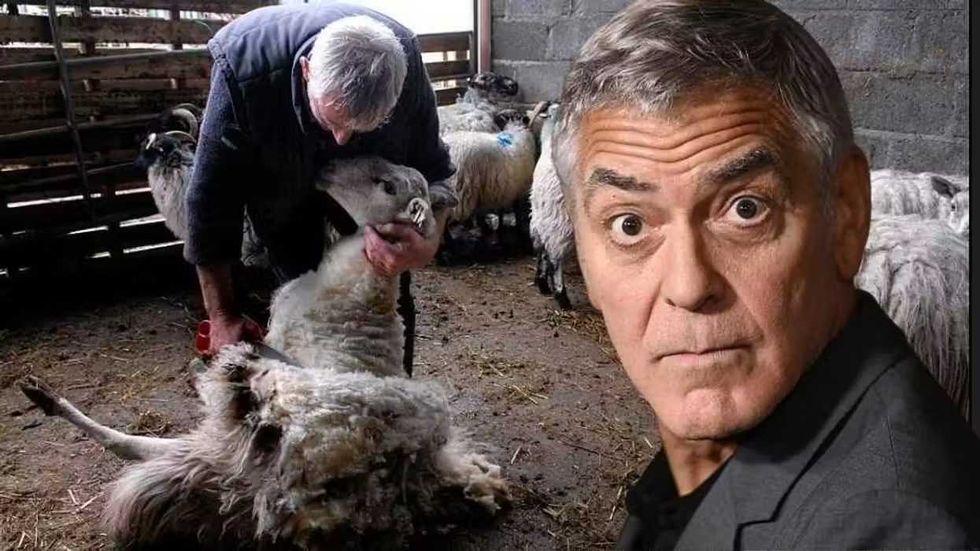 Axelle/Bauer-Griffin/Andia/Getty Images
Axelle/Bauer-Griffin/Andia/Getty Images
Corporate cleavers
The story is no different across the Atlantic. In Europe, the meat trade has been quietly butchered by the same corporate cleavers. Small abattoirs — the lifeblood of rural France, Ireland, and Spain — have disappeared beneath the weight of regulation and consolidation. What used to be an honest trade of handshakes and hanging carcasses is now ruled by faceless conglomerates answering to Brussels and shareholders in Frankfurt. The European Union speaks loftily of “sustainability,” but its policies have done more to sustain monopolies than livelihoods.
Ask a French farmer about EU policy, and you’ll get a shrug somewhere between despair and disgust. In Ireland, cattle farmers — men like my father, who once fed nations through famine and war — now feed debt. In Germany, abattoir workers live in company dorms, shipped in from Eastern Europe to keep costs down. The romance of the pastoral has been replaced by the cold arithmetic of the spreadsheet.
From beef to bugs
Meanwhile, consumers are told to eat less meat “for the planet.” How convenient for the corporations that now sell the alternatives — lab-grown patties and insect protein, neatly packaged in recyclable guilt. They’ve found a way to profit from both sides of the moral ledger: first by monopolizing real meat, then by marketing its replacement. It’s a master class in hypocrisy and a catastrophe for the working class.
Trump’s decision to investigate the industry won’t fix a century of collusion overnight, but it is a long-overdue reckoning. For decades, Democrats and Republicans alike treated Big Meat as too big to question. The lobbyists wrote the laws, the lawyers buried the lawsuits, and the bureaucrats looked away. The result is a landscape where cattle ranchers depend on corporations that despise them and consumers rely on supply chains that could snap at any moment.
Food, the most basic human need, has become another instrument of control. When you own the meat, you own the man. Farmers used to raise herds; now they herd invoices and inspectors.
It’s tempting to believe that this system is simply broken. It isn’t. It works exactly as designed — to enrich the few and exhaust the many. The old rural ideal of self-reliance has been slaughtered on the altar of efficiency. What we are left with is a parody of plenty: full shelves, empty towns, and even emptier pockets..
Trump’s probe may not slay the beast, but at least someone is willing to pull back the curtain and show the nation what’s really being carved up. For decades, the Big Four packers have sliced the market to ribbons, fixing prices while farmers starved and consumers paid the bill. Now, for the first time in generations, there’s a man in power with the will to carve them up instead. Call it poetic justice: The butchers may finally find themselves on the block.
Trump warns Mamdani ahead of high-stakes Oval Office meeting: ‘He has to be careful’
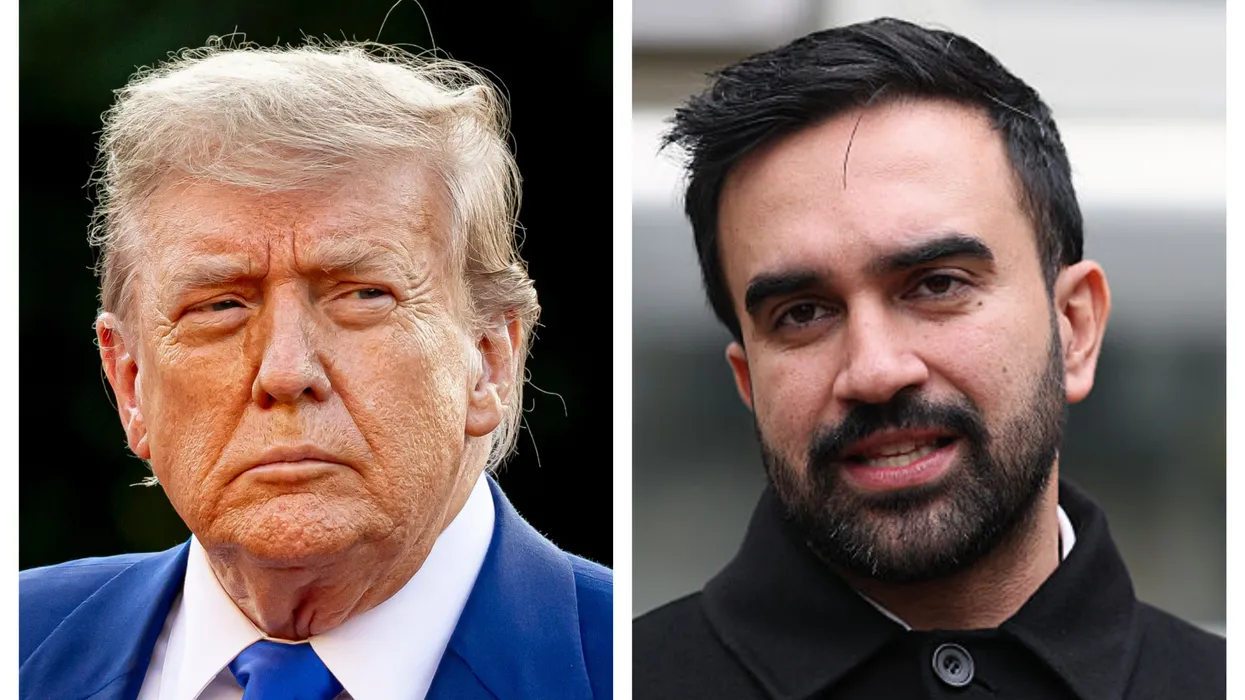
President Donald Trump has offered a preview of his highly anticipated meeting with New York City’s newly elected socialist mayor.
Trump’s meeting with Mayor-elect Zohran Mamdani (D) in the Oval Office Friday afternoon is proving to be one of the most highly anticipated sit-downs of his second term. Trump described Mamdani, a staunch progressive and outspoken critic of the president, as “a little bit different” but remained optimistic about the meeting.
‘I give him a lot of credit.’
“He’s got a different philosophy,” Trump told Brian Kilmeade Friday. “He’s a little bit different.”
One of the focal points of Mamdani’s campaign was affordability, an issue that has also been a pillar of Trump’s administration. Although their respective solutions to address affordability are at odds, Trump maintained that the two New Yorkers are ultimately “looking for the same thing.”
RELATED: Is Trump meddling with Mamdani’s candidacy?
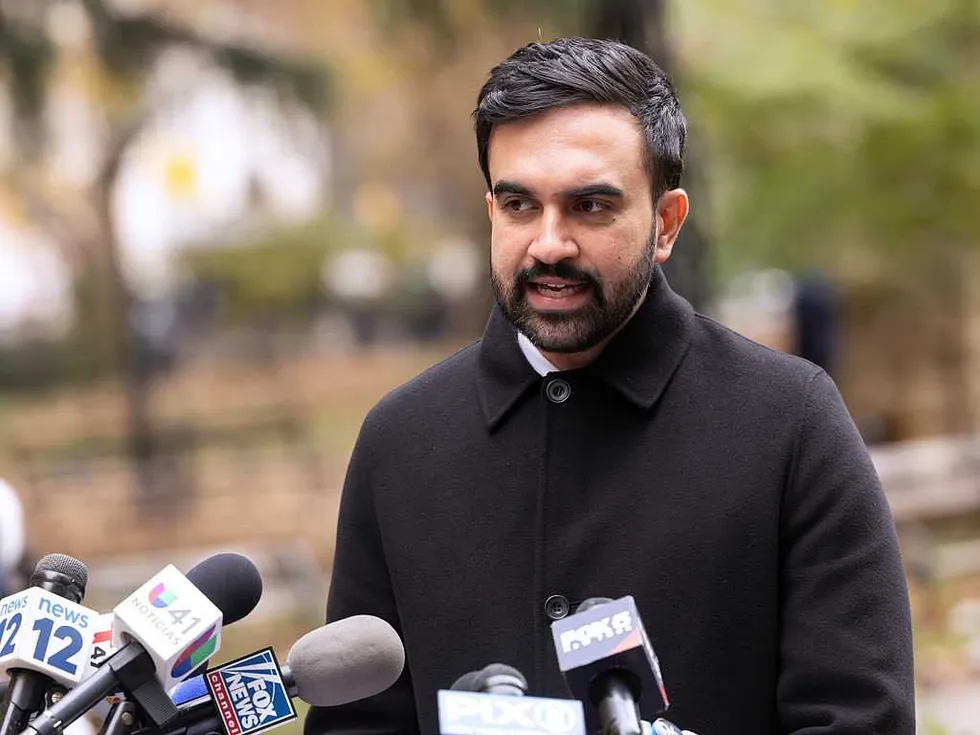 Photo by BG048/Bauer-Griffin/GC Images
Photo by BG048/Bauer-Griffin/GC Images
“I give him a lot of credit for the run. He did a successful run, and we all know that runs are not easy,” Trump said. “But I think we’ll get along fine. Look, we’re looking for the same thing. We want to make New York strong.”
Since his decisive victory in early November, Mamdani has continued to rail against Trump and his administration. During his victory speech, Mamdani infamously told Trump to “turn the volume up.” In response, Trump issued Mamdani a warning but commended his campaign nonetheless.
RELATED: Zohran Mamdani becomes first openly socialist mayor of New York City
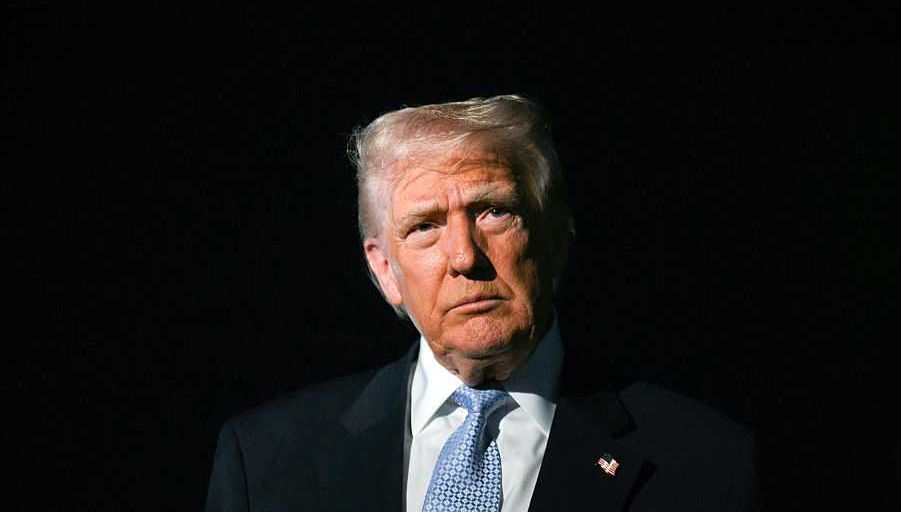 Photo by JIM WATSON/AFP via Getty Images
Photo by JIM WATSON/AFP via Getty Images
“Well, I was hitting him a little hard too, in all fairness,” Trump said. “It’s hard to be totally friendly to the opponent, you know. … He had some interesting opponents. But he ran a good race. I don’t know exactly what he means by ‘turn the volume up’ because ‘turn the volume up,’ he has to be careful when he says that to me.”
“I think it’s going to be quite civil. You’ll find out.”
Like Blaze News? Bypass the censors, sign up for our newsletters, and get stories like this direct to your inbox. Sign up here!
Eric Swalwell launches anti-Trump gubernatorial campaign amid criminal referral to DOJ
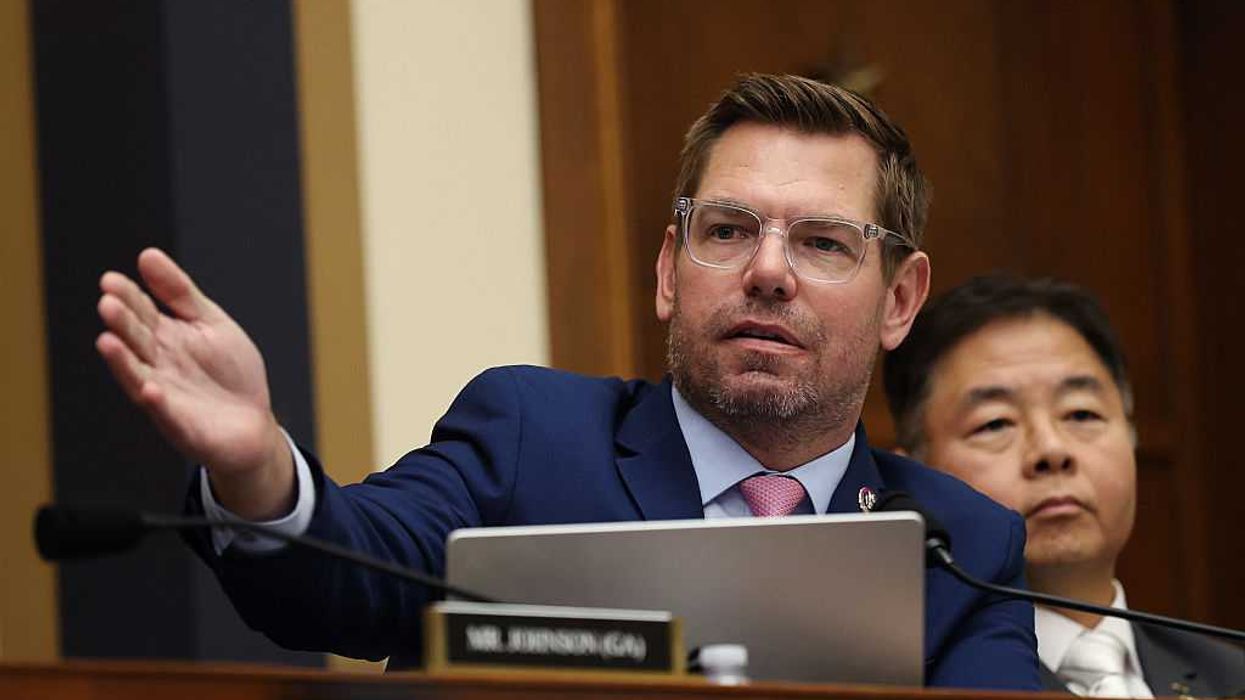
As more candidates throw their hats in the ring ahead of the 2026 midterms, yet another Democrat has joined the fray to succeed one of the most infamous governors in America.
Anti-Trump Democrat Rep. Eric Swalwell announced on Thursday that he will be running for governor of California in 2026.
‘I love California. It’s the greatest country in the world.’
Swalwell, who spearheaded Trump’s second impeachment, made the announcement on a segment of “Jimmy Kimmel Live,” a show for which President Trump has repeatedly expressed his distaste.
Earlier this month, Trump’s director of the Federal Housing Finance Agency, Bill Pulte, sent a criminal referral for Swalwell to the Department of Justice, alleging that Swalwell may have committed mortgage fraud. Swalwell responded by claiming to be a victim of politically motivated prosecution.
“I refuse to live in fear in what was once the freest country in the world,” he said.
“I will not stop speaking out against the president and speaking up for Californians.”
RELATED: Eric Swalwell finally answers Chinese spy allegations: ‘I would hope that would be enough’
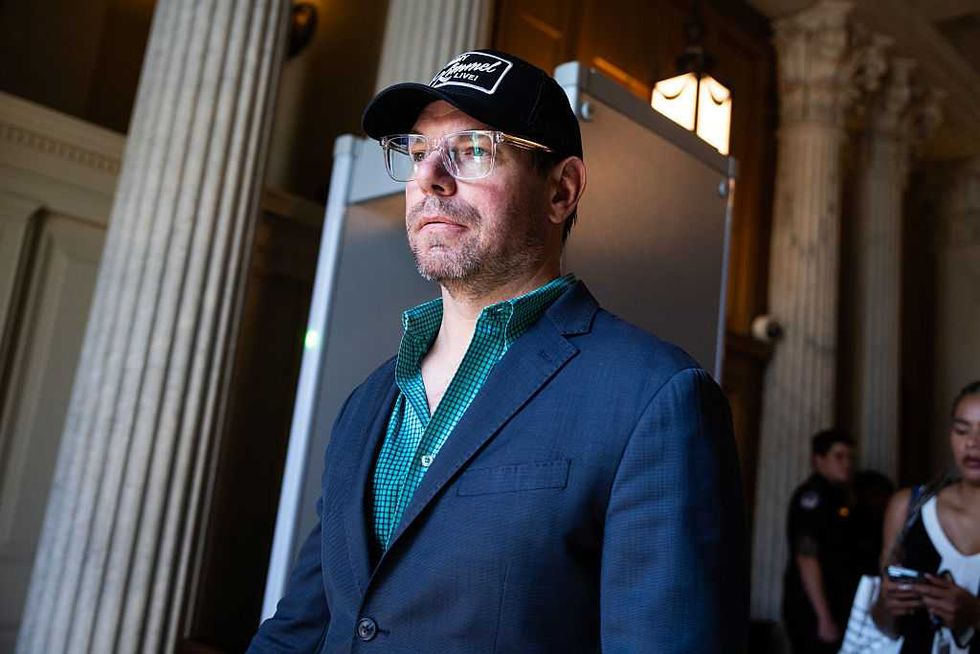 Tom Williams/CQ-Roll Call Inc. via Getty Images
Tom Williams/CQ-Roll Call Inc. via Getty Images
Swalwell says California needs a “fighter and protector” on his X profile page.
“I’m ready to bring this fight home. So I came here tonight, Jimmy, to tell you and your audience that I’m running to be the next governor of California,” Swalwell announced to Kimmel.
During his remarks, Swalwell also referred to California as a “country.” “I love California,” he said. “It’s the greatest country in the world.”
Even Kimmel appeared confused, repeating, “Country?!” followed by a laugh.
Kimmel joked that Swalwell will have to “figure out the beard,” suggesting a full prospector look: “You’re either going to have to go more beard or less beard, because you’re in a beard nether region right now that we can’t have.”
Swalwell’s campaign video starts by saying the governor of California will have two jobs: “One, keep the worst president in our history out of our homes, out of our streets, and out of our lives.”
The second is to “bring us a new California,” a variation of one of his campaign slogans.
Swalwell joins an already crowded gubernatorial race. Other Democrats include Rep. Katie Porter, former Los Angeles Mayor Antonio Villaraigosa, former Health and Human Services Secretary Xavier Becerra, and state Superintendent Tony Thurmond.
Blaze News reached out to the White House for comment but did not immediately receive a response.
Like Blaze News? Bypass the censors, sign up for our newsletters, and get stories like this direct to your inbox. Sign up here!
Blaze Media • Boise • Boise pride • Flags • Opinion & analysis • Pride flag
These banners don’t just signal ‘Pride’ — they announce conquest

On September 11, 2001, three New York firefighters raised an American flag above the wreckage of the World Trade Center. That moment was more than an image. It was a declaration that the country had buckled but not broken. That flag rallied millions, inspired enlistments, and stiffened a nation’s resolve mere hours after the most devastating attack in modern U.S. history.
In 2025, the opposite message is taking root in some of America’s cities. In Boise, Idaho, and Minneapolis, Minnesota, local leaders elevate symbolic banners that compete with, sidestep, or openly contradict the national and state standards that define shared civic space.
If we want unity, we must lead with the symbols that foster it. Because if we don’t plant our flags, someone else will.
In Boise, a blue island in a bright red state, Mayor Lauren McLean (D) kept the Pride flag flying over City Hall despite Idaho’s HB 96, a law restricting public property to the U.S. and state flags. After Attorney General Raúl Labrador (R) issued a cease-and-desist, McLean responded with a letter threatening legal action and framed her stance as “standing with my community.” The city council followed with a 5-1 vote to adopt the Pride flag as an official city emblem to get around the law.
In Minneapolis, state Sen. Omar Fateh (D) waved a Somali regional flag at an October campaign rally. Supporters defended the gesture as cultural outreach to the city’s large Somali population. Opponents saw something else: a political statement that placed clan or regional identity ahead of shared civic loyalty.
At first glance, these acts look harmless. But historians — and anyone who has studied conflict or national movements — know that flags communicate power. A flag marks territory, signals allegiance, and announces who intends to lead.
A banner raised in a civic space says something about the future of that space. It’s a symbol of conquest — in this case, conquest without firing a shot.
Minneapolis illustrates the stakes. Somali-Americans represent a large and active community, and political leaders court their votes aggressively. But clan politics from Somalia’s fractured landscape often follow families to the United States.
Analysts noted that Minneapolis’ recent mayoral race reflected clan splits, with blocs supporting or opposing Somali candidates not on ideology but lineage. That tension influences local elections and creates new pressures on civic life.
Political imagery matters when communities already navigate competing loyalties. A foreign regional flag held aloft at a campaign rally isn’t a neutral gesture; it’s an invitation to organize political power around identities that do not map cleanly onto American civic culture.
History amplifies that point. For centuries, flags have signaled triumph or defeat long before a treaty forced anyone’s hand. At Fort McHenry in 1814, the sight of the American flag still flying after a night of bombardment, energized defenders and inspired the poem that became our national anthem. At Iwo Jima in 1945, Marines raised the U.S. flag atop Mount Suribachi, transforming a brutal fight into a symbol of American resolve and shifting the morale of both sides.
Flags shape memory. They mark identity. They tell people who stands firm and who gives ground.
RELATED: The real danger isn’t immigration — it’s the refusal to become American
 Photo by Stephen Maturen/Getty Images
Photo by Stephen Maturen/Getty Images
That is why the flags flown on public property matter now. McLean’s use of the Pride flag isn’t just about “love is love.” It supplants the symbol that binds Idahoans across differences. Fateh’s regional Somali flag isn’t simply cultural pride; it injects external political identities into municipal politics and signals a shift in who claims influence over public life.
Americans can shrug at this trend or take it seriously. Civic symbols either unite a people or divide them. A city hall flagpole should unify, not segment communities into competing camps. A political rally should appeal to voters as Americans, not as factions drawn from overseas allegiances.
The answer is not outrage or retaliation. The answer is clarity: reclaim civic symbols that express shared loyalty to a shared country. Fly the U.S. flag. Fly state flags. Encourage communities to celebrate their heritage while affirming the nation that binds them together.
A nation confident in itself does not surrender its symbols. It presents them proudly — on porches, at city halls, and at the center of public life. America’s strength begins with the values and commitments those flags represent.
If we want unity, we must lead with the symbols that foster it. Because if we don’t plant our flags, someone else will.
search
categories
Archives
navigation
Recent posts
- Gavin Newsom Laughs Off Potential Face-Off With Kamala In 2028: ‘That’s Fate’ If It Happens February 23, 2026
- Trump Says Netflix Should Fire ‘Racist, Trump Deranged’ Susan Rice February 23, 2026
- Americans Asked To ‘Shelter In Place’ As Cartel-Related Violence Spills Into Mexican Tourist Hubs February 23, 2026
- Chaos Erupts In Mexico After Cartel Boss ‘El Mencho’ Killed By Special Forces February 23, 2026
- First Snow Arrives With Blizzard Set To Drop Feet Of Snow On Northeast February 23, 2026
- Chronological Snobs and the Founding Fathers February 23, 2026
- Remembering Bill Mazeroski and Baseball’s Biggest Home Run February 23, 2026






